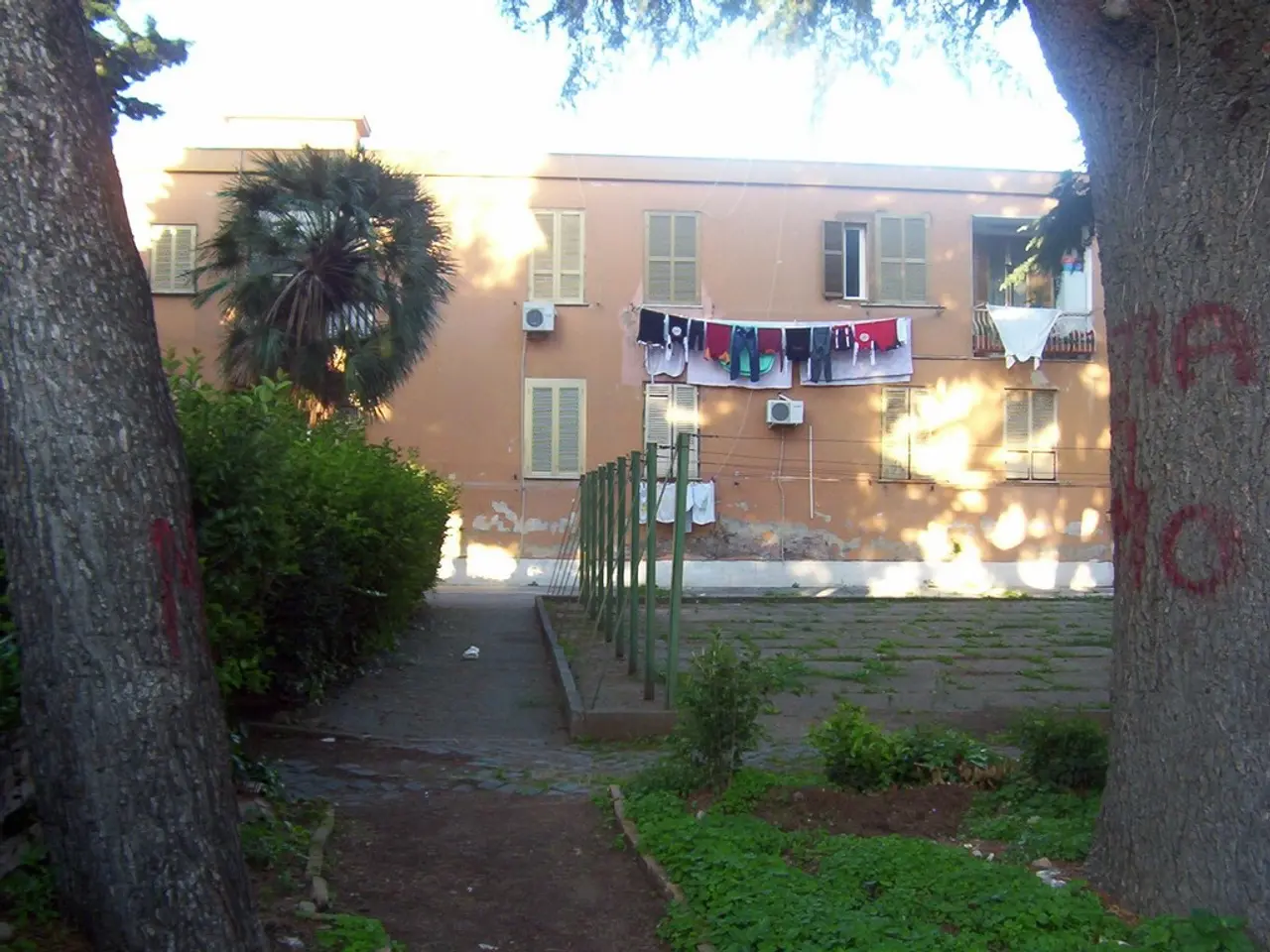Stalled Deportation: Asylum Seeker Maintains Temporary Social Aid
Pending Decision: Temporary Continuation of Social Aid for Asylum Applicant - Immediate action: provisional expansion of aid for individuals required to vacate their residences
In an intricate web of EU and national regulations, the fate of an asylum seeker hailing from Afghanistan lingers in limbo. This individual, born in 1996, entered Germany in April 2024, utilizing a Polish Schengen visa. He filed an asylum application and was subsequently housed in a community facility.
The BAMF (Federal Office for Migration and Refugees) rejected his asylum application as inadmissible, issuing a deportation order to Poland. However, the Polish authorities agreed to take him back only if he was in his assigned accommodation. Despite two unsuccessful attempts to deport him, the asylum seeker eluded capture due to his abscondence from his accommodation, subsequently ceasing to receive benefits.
The BAMF extended the transfer deadline to December 2025. In response, the asylum seeker approached the Social Court Stade, appealing his case to the State Social Court in Celle, Lower Saxony. The State Social Court established that a voluntary departure was not feasible in this scenario, particularly in Dublin III procedures that primarily involve deportations.
This case raises questions about future European Court of Justice inquiries on the compatibility of the new regulation with European minimum standards for securing subsistence during the asylum process.Previous rulings by various social courts have leaned in favor of the asylum seekers under similar circumstances.
European Union Regulations: A Mixed Bag
The EU offers migratory and asylum policies that include temporary protection mechanisms for displaced individuals like those fleeing Ukraine as of early 2025. Around 4.2 to 4.3 million people currently benefit from temporary protection across the EU, with extensions planned through 2027. Temporary protection offers basic rights, such as residence permits and access to social welfare, but is explicitly temporary and linked to specific situations of mass displacement.
Migration to national statuses is encouraged among Member States, but lacks uniformity, leading to fluctuating national rules and potential differences in treatment. Some countries, like Poland, have adopted regularization schemes for temporary protection beneficiaries, granting them longer-term residence permits after certain conditions are met.
Social Benefits in Germany: Beyond the Waiting Period
Under German law, asylum seekers have restricted access to social benefits and healthcare during the initial 36 months of their stay, primarily limited to treatment for acute illness, necessary vaccinations, and maternity care. Following 36 months, if deportation remains unfruitful and the individual continues to reside in Germany, asylum seekers become eligible for "standard" social benefits comparable to those of German citizens receiving benefits.
Recently, the Rückführungsverbesserungsgesetz (Act to Improve Removals) has extended the waiting period for accessing these benefits, aiming to facilitate deportation and reduce benefits in certain cases. This extension has faced criticism for potentially worsening health outcomes and social exclusion among asylum seekers. The State Social Court in Celle would adjudicate this case in line with national legislation, balancing EU directives on fundamental rights and national social codes.
- Given the ongoing stalemate in the asylum seeker's case, there is a need for the community institution to consider implementing vocational training programs as an alternative to general news and policy-and-legislation solutions, potentially improving the individual's situation and contributions to society.
- As the EU continues to grapple with issues of migration and asylum, it is crucial forMember States, like Germany, to review and adjust their social benefit policies beyond the waiting period, especially in light of the Act to Improve Removals, ensuring that policies foster integration and reduce social exclusion among asylum seekers, while adhering to European Union regulations on fundamental rights.







